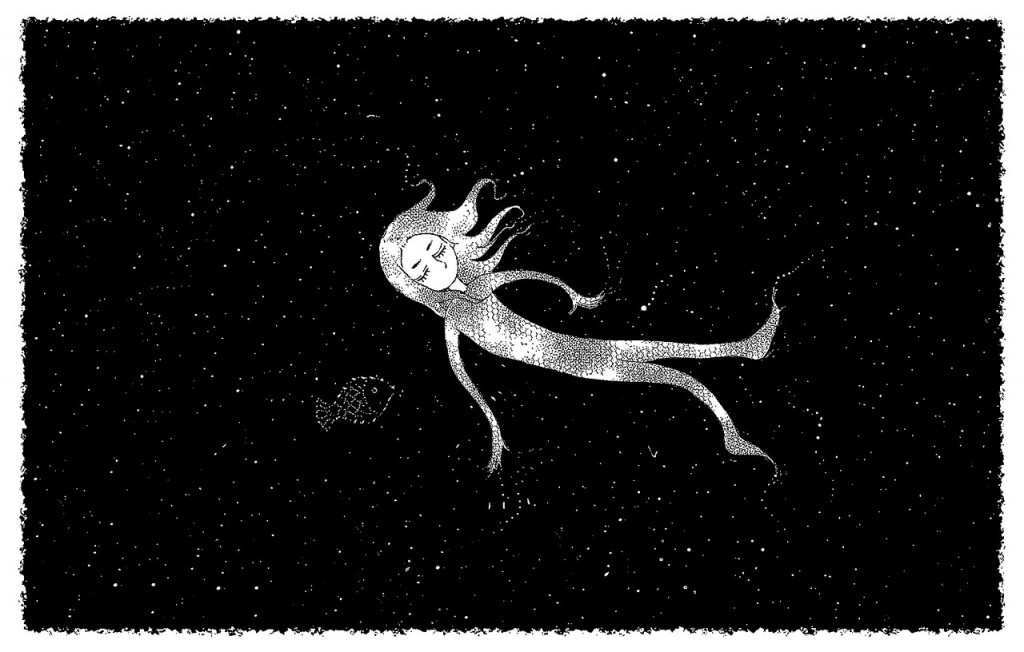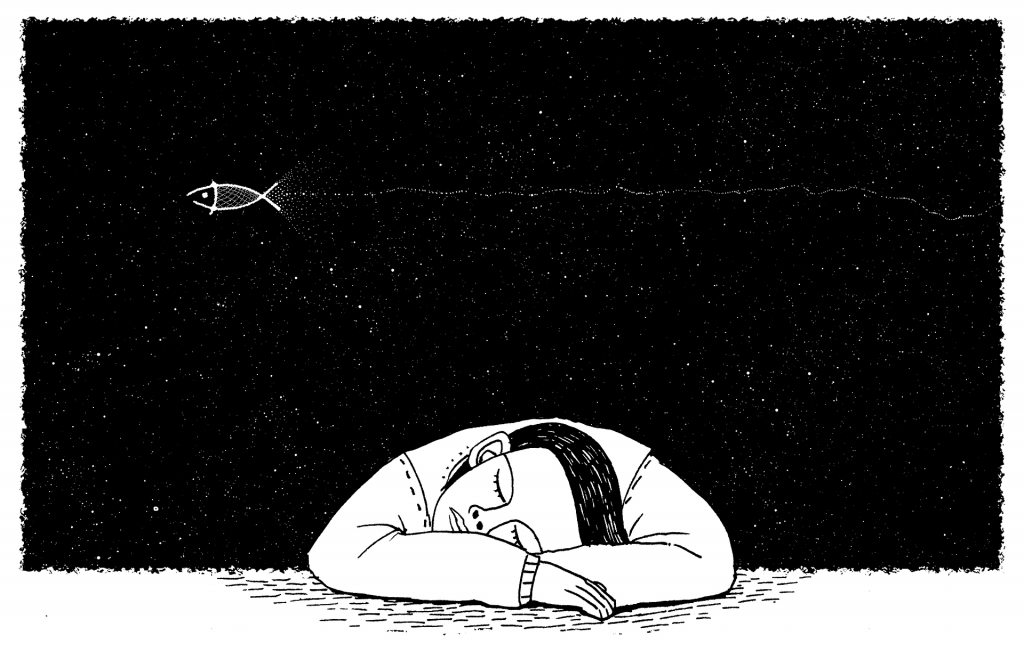I’ve wanted to write something like this for quite a while. Because sometimes writing about things makes them easier to deal with or just gives you the illusion of someone somewhere reading what you’ve written and maybe, just perhaps, knowing how you feel. But also because I feel like a lot of people struggle with issues that aren’t necessarily so visible to the outside world, but still make everyday life challenging.
Imagine feeling so tired that it’s simply impossible to hold your eyelids open. Imagine being so exhausted that forming words becomes a sheer impossibility because you no longer have the energy to move your lips. And imagine that falling asleep just feels so good that you’re not sure why you ever tried to stay awake. Then imagine going through this feeling numerous times a day. Try to imagine fighting it with everything you’ve got, just so you can function normally. It takes up a lot of energy just to act normal. –Hell, I get tired just thinking about it.
 It’s been almost a year since I got diagnosed with a condition called narcolepsy. Now, I suppose I could drown you with quotes from scientific studies explaining what narcolepsy is and what it does, but I’d like to stick to my own words. Basically narcolepsy is a neurological disorder that makes you really tired during the day, which results in falling asleep a lot and in various exciting places like lectures, the bus, restaurants, trains, at the computer… The list goes on. Depending on which type of narcolepsy you have, you might also experience cataplexy, which is emotion triggered muscle weakness. Lucky me, I happen to have narcolepsy with a side of cataplexy. Basically that means it’s not a good idea to make me laugh while I’m holding something very expensive.
It’s been almost a year since I got diagnosed with a condition called narcolepsy. Now, I suppose I could drown you with quotes from scientific studies explaining what narcolepsy is and what it does, but I’d like to stick to my own words. Basically narcolepsy is a neurological disorder that makes you really tired during the day, which results in falling asleep a lot and in various exciting places like lectures, the bus, restaurants, trains, at the computer… The list goes on. Depending on which type of narcolepsy you have, you might also experience cataplexy, which is emotion triggered muscle weakness. Lucky me, I happen to have narcolepsy with a side of cataplexy. Basically that means it’s not a good idea to make me laugh while I’m holding something very expensive.
In addition to all that, it seems that so far there’s no cure.
It’s one of those diseases that most likely won’t kill you, but will make your life harder in many aspects. The physical side is an obvious obstacle. It’s not cool always being the first one to fall asleep at sleepovers, being tired despite the fact that you’ve slept for more than nine hours, and having to plan your life around something you can’t control.
I like to compare these “Sleep Attacks” to a toddler having a temper tantrum. You can’t exactly predict when it’s going to happen, but you have a fairly good idea about when it might. For example if you’re at the Supermarket and a toddler asks you to buy them a bag of candy and you deny the request, you can be fairly sure a temper tantrum is what you’re going to get. But on the other hand a toddler might just end up kicking and screaming over the color of their socks.
The same goes for narcolepsy. I know that if I sit through a lecture with having to stay still and just listen there’s a good 99,9% chance I’ll doze off. Or if I start reading a book (even one I really like) while lying down, I’ll probably be snoring in less than ten minutes.
I can predict that it’s more likely to have one of my “Sleep Attacks” during passive activities than for example while running or walking. But then again I have fallen asleep during dinner at a restaurant and during choir practise. I can make educated guesses, but at the end of the day it still is what it is – a guessing game.
Having narcolepsy is like participating in a never-ending guessing game. Where will I fall asleep today? Will I miss my stop on the train and end up in the middle of nowhere? Will I sleep through something important? Will people be upset with me? And the catch is you never know for sure. There are ways to rig the game a bit, for example by taking medicine. But it’s not a 100% reliable lifeline and of course there are side effects, as is the case with most types of medication. And to me the idea of having to take medicine every single and to rely on it to make sure you function normally is hard enough, but not being able to depend on it to work seamlessly makes it worse.
It’s all a matter of weighing pros and cons, and it’s never as simple as it seems. A sleep attack is like a slap across the face for me. And the worst feeling comes after the attack itself. The unnecessary shock, anger, and frustration that comes with realizing once again that being able minded doesn’t make you able bodied. And for a self-proclaimed control freak like me, there’s nothing worse than not being in control of your own body.
People can try to understand the physical side of narcolepsy, the biology behind it, but I feel like what most people don’t realize is that having a long-term disease that you suffer from every single day takes a toll on the mental side as well. Dealing with the disease is a part of the disease itself. In some ways it becomes one of the symptoms. And dealing with it all alone can be a huge burden. Narcolepsy is a relatively rare disease and I personally haven’t met anyone else who suffers from it. It can be isolating and incredibly lonely having such a big part of your life be something most people can’t relate to at all.
The truth is that I have a lot of great friends who are willing to listen to my worrying and who try to understand, but with some things you can explain as much as you like but they still won’t be completely understandable or relatable to anyone who hasn’t been in a similar situation.

I talk about narcolepsy a lot. And I can tell that after a while it gets old with even the most understanding and patient friends. I can see their eyes glaze over as I talk about my latest episode or complain about my medicine giving me a headache. And my experience tells me that a disease that isn’t necessarily clearly visible to the outside world or that isn’t life threatening is easily regarded as not being “serious enough”. It’s almost as if because people can’t concretely see the disease affecting me it’s not real. It’s not like a bleeding wound or a broken bone that catches your eye right away, but it’s a constant battle going on underneath even though the surface looks calm.
As I mentioned earlier narcolepsy isn’t one of the most common diseases on planet Earth. This makes it easy for people to get misconceptions about the disease and the people who suffer from it. There isn’t much representation for narcolepsy in the mainstream media (movies, series, books, etc.) let alone accurate and respectful representation. I feel like it’s always portrayed as some sort of punchline, which encourages people to treat it as a joke or at the very least not a “real” disease.
I’m not the kind of person who can’t take a joke, but it does feel insulting to have people belittle what I’m going through. The worst thing might be when people actually tell me they wish they had my disease. –Yes, that has actually happened and more than once. It makes me cringe remembering how many people have responded to me telling them about my condition with “Oh I wish I could nap that easy” or “I wish I had an excuse to nap all the time”.
And I feel like this would be a good moment to clarify that life with narcolepsy isn’t constant misery and all that jazz. I’m mostly happy with my life and try to accept whatever it throws at me. I recognize that I’m lucky in so many ways. I get to study something that interests me, I have amazing friends and amazing family. I just also happen to have a life changing condition that forces me to do things differently and to struggle with things that seem so mundane to others. And I’ll admit that narcolepsy is a force to be reckoned with, but it won’t stop me from trying to live life the best I can.
It’s so easy to look up medical descriptions of diseases, but it’s incredibly hard to grasp what it means to actually live with them. It’s easy to form an impression of a disease based on what you see in movies or TV, but it’s rarely the full story. I guess I hope that by showing people a glimpse of my life with narcolepsy will try to help them understand and give them a better idea of what this disease is in everyday-life. I want to give people the opportunity to try to walk in my shoes, even if it is just for while reading this article.


